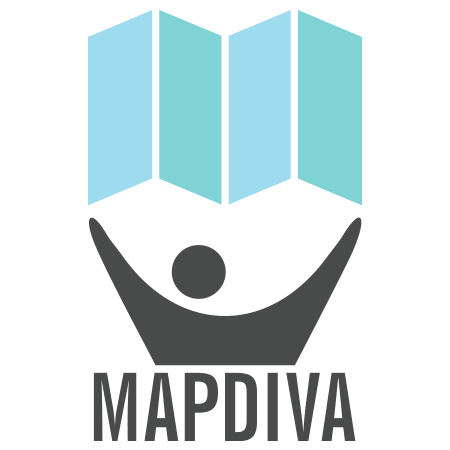Release Notes 2015 Videos
There were eleven amazing talks at Release Notes 2015, and all of them are featured here.
Jim Dalrymple
@jdalrymple
You can’t do everything yourself if you want to build a long-term business that grows. Sooner or later, you have to find talented people you trust and delegate some tasks so that you can spend your time where it’s most needed. Jim Dalrymple has tons of experience with this, as someone who hires writers, designers, animators, developers, editors, and producers for his website,The Loop, his e-magazine, Loop Magazine, and his many popular podcasts. Jim will offer advice on finding great talent and trusting them with the many tasks you shouldn’t be trying to do all on your own.
Myke Hurley
@imyke
Co-founder of Relay FM, Myke Hurley will share some of his own personal history of how he took his side-gig full time, and what it took for him to build a successful business. As the creator of the “Behind the App” podcast series, Myke gained a unique perspective on developers in our community. In his talk, Myke will share what he learned through his “Behind the App” interviews, and explain why he thinks indie developers are helping shape the creative work of people and helping them achieve their dreams.
Jean MacDonald
@macgenie
In her position at Smile Software, Jean MacDonald was often tasked with finding new and creative ways for the company to market its products. One of the more effective tools she found was podcast advertising, which led to Smile being one of the early supporters of the medium. Jean will explore the ways in which podcast ads can be more effective than other forms of advertising on the web, and show you how to stretch your budget to get the most coverage for your advertising dollar. She’ll also offer some observations on how to evaluate your marketing efforts and how small companies with small budgets can most effectively spend their limited resources on an advertising and marketing effort.
John Saddington
@8bit
Most indie developers know they can’t spend 100% of their time on development, tempting as that may sound. John Saddington will demonstrate his 50/50 rule, an approach that combines 50% engineering and product development with 50% marketing and traction-building to help ensure your product finds an audience once all the engineering work is finished.
Chris Liscio
@liscio
With highly successful products like Capo and FuzzMeasure, Chris Liscio has built his business by targeting a small, specialized niche of prosumer customers and charging them a fair price. Chris will focus his talk on taking the long view of building a business by slowly and steadily growing a customer base rather than by chasing the latest trends on the App Store. Learn how Chris’s business has thrived by taking advantage of the breadth and ubiquity of the App Store, while targeting a vertical niche market.
Pieter Omvlee
@pieteromvlee
Most small app development companies like to wear the “indie” badge with pride, shouting from the rooftops their independence and scrappy resourcefulness. But customers of professional products often don’t care whether or not you are indie; many of them would actually prefer to buy products from established companies. Pieter Omvlee will talk about how to punch above your weight class, to create a sense that you are a bigger and more established company in order to gain the trust and respect you need from premium customers. If you want to be taken seriously as a professional, your company needs to behave in a professional manner.
Georgia Dow
@georgia_dow
Psychotherapist Georgia Dow explores the psychology of making your customers happy. Every app leaves its user with a feeling. How can you craft your user experience of your product to help ensure that feeling is a positive one? Georgia offers concrete tips on doing exactly that, and explores ideas for building a happy community of customers around your apps.
Daniel Pasco
@dlpasco
Shipping products that crash and misbehave is a sure-fire way to customer service hell and ultimately failure. But how do you build a proper quality assurance (QA) process with an indie’s limited budget and time? Daniel Pasco will make an argument for why QA is essential to small indie developers and offer some advice on how to improve your QA processes. We always ship with bugs; the trick is to make informed decisions about which bugs stay and which ones need immediate fixing. Daniel’s advice will help you implement a manageable QA process that helps expose bugs early, so you can make informed decisions about your own software.
Rachel Andrew
@rachelandrew
Even if your product is your full-time gig, you will always have far too many things to do. How do you make time for all of this stuff? How do you decide what you should spend your time on? Rachel Andrew will bring together her experience as someone who built a product as a side project and developed it until it became her full-time thing. She’ll also share some of the knowledge she has learned from other product people, as we all try and build great product businesses and also get some sleep!
Rob Rhyne
@capttaco
Every business is different. Accepted wisdom and anecdotal evidence may get you out of the starting blocks, but it can only take an indie business so far. To succeed in the long-term, you have to find out what works and what is right for your business. Martian Craft’s Rob Rhyne will demonstrate how to “science” your business by adjusting your business strategy according to sampled data. You’ll learn to collect and study the measurable data that will actually help you improve your chances of success. He’ll also offer tips on accounting and money management, the pros and cons of consulting vs. product work, and offer advice on diversification and scale.
David Smith
@_DavidSmith
For many years, David Smith struggled in building the business he wanted. It wasn’t until he could answer two key questions that he reached a turning point. Those questions? 1) What is my super-power? and 2) What is the one thing I desire most for my business? After finding those answers, David began to make real progress in building the business of his dreams. In his talk, David walks through his own experience of finding his answers to these questions, explains how this line of thinking transformed him and his business, and challenges the audience to consider their goals and find their own superpower.

